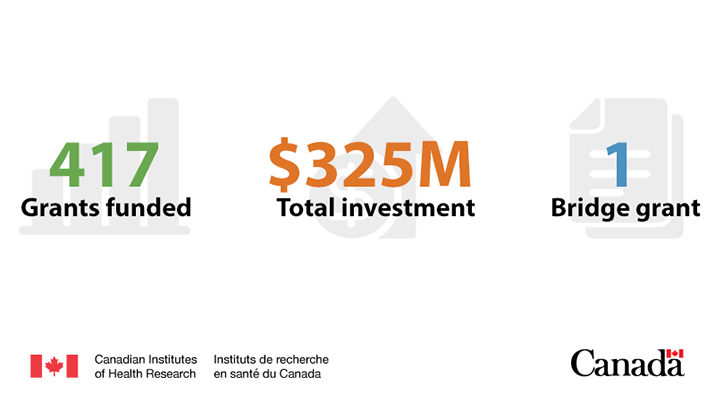

Dr. John Helliwell (University of British Columbia) and Dr. Laura Rosella (University of Toronto) are Dr. Kim’s co-investigators on the research project Life satisfaction and physical health: Identifying underlying mediators and characterizing key moderators.
The CIHR Project Grant program is designed to capture ideas with the greatest potential to advance health-related fundamental or applied knowledge, health research, health care, health systems, and/or health outcomes. It supports research projects proposed and conducted by individual researchers or groups of researchers in all areas of health.
In total, UBC researchers are leading 48 projects awarded Project Grants totaling $34.7 million.
In Canada, life expectancy has stagnated, and years lost to disability have increased. Further, healthcare spending, which reached $264.4 billion in 2019, is projected to continue escalating. This is partly attributable to our rapidly rising older adult population; as people age, the prevalence and burden of chronic disease, and associated costs, increase. Thus, identifying factors that foster the maintenance of healthy ageing is of heightened importance for improving the health of our rapidly ageing society and containing healthcare costs. Most biomedical and public health efforts focus on reducing harmful risk factors. To date, this approach has had limited success in addressing the rising tide of unhealthy behaviours, chronic diseases, and healthcare costs. Thus, increasing attention has focused on identifying resilience factors that enhance people's ability to maintain health. Growing research shows that life satisfaction-a target of growing interest among citizens, policy-makers, and several prominent intergovernmental organizations (e.g., OECD, WHO, UN) alike-is consistently associated with reduced mortality risk. However, the underlying mechanisms of and the factors moderating this connection are unclear. The proposed research is relevant to public health because evaluating how life satisfaction is associated with a range of behavioural, biological, and stress-mitigating mechanisms will move the field forward by building the scientific case for a causal relationship between higher life satisfaction and enhanced health. This in turn will provide new directions for building a science of resilience, and providing new targets for preventive and therapeutic life satisfaction interventions and policies. Thus, the proposed research is relevant to CIHR's mission to create new scientific knowledge and enable its translation into improved health, more effective health services and products, and a strengthened Canadian health care system.


